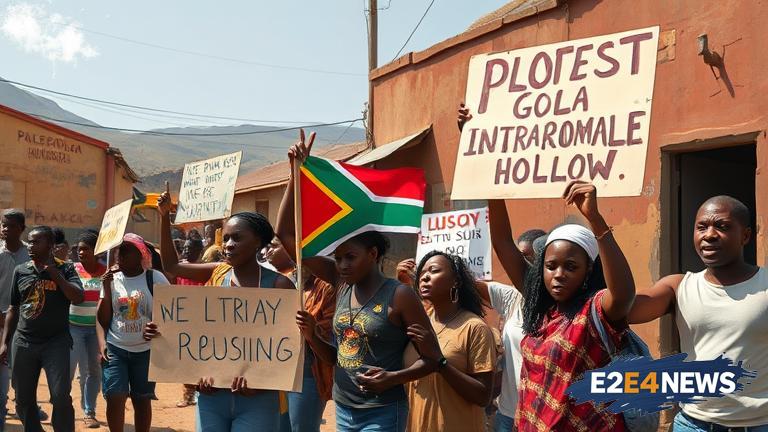In recent weeks, activists and residents of Cape Town’s informal settlements have been protesting against the inadequate housing and poor living conditions in their communities. The protests, which have been ongoing for several months, have highlighted the dire need for affordable and decent housing in the city. According to reports, many residents are forced to live in cramped and unsanitary conditions, with limited access to basic services such as water, electricity, and sanitation. The protesters are demanding that the government take immediate action to address these issues and provide them with dignified and secure housing. The protests have been organized by various community groups and social movements, including the Social Justice Coalition and the Reclaim the City movement. These groups have been working tirelessly to raise awareness about the housing crisis in Cape Town and to push for policy changes that will benefit the city’s most vulnerable residents. The protests have also drawn attention to the issue of evictions, which have become increasingly common in recent years. Many residents have been forcibly removed from their homes and relocated to temporary relocation areas, where they are forced to live in harsh conditions. The protesters are calling for an end to these evictions and for the government to provide them with secure and affordable housing. The housing crisis in Cape Town is a complex issue, with roots in the city’s history of apartheid and segregation. During the apartheid era, many black and colored residents were forcibly removed from their homes and relocated to townships and informal settlements. Today, these communities continue to struggle with poverty, unemployment, and lack of access to basic services. The government has promised to address these issues, but progress has been slow. The protesters are demanding that the government take concrete steps to address the housing crisis, including increasing the budget for housing and providing more support for community-led housing initiatives. They are also calling for an end to the practice of evictions and for the government to work with communities to develop sustainable and inclusive housing solutions. The protests have been met with a mixture of support and criticism from the government and other stakeholders. While some have praised the protesters for their courage and determination, others have criticized them for their tactics and accused them of being ‘unreasonable’ and ‘unrealistic’. However, the protesters remain committed to their cause and are determined to continue fighting for their right to decent and affordable housing. The issue of housing is a critical one in South Africa, where millions of people continue to live in poverty and without access to basic services. The government has a responsibility to address this issue and to provide its citizens with dignified and secure housing. The protests in Cape Town are a reminder that this is a pressing issue that requires immediate attention and action. The government must work with communities and social movements to develop sustainable and inclusive housing solutions that benefit all residents, regardless of their income or social status. This includes increasing the budget for housing, providing more support for community-led housing initiatives, and working to prevent evictions and promote secure tenure. By taking these steps, the government can help to address the housing crisis in Cape Town and ensure that all residents have access to decent and affordable housing. The protests are also a reminder of the importance of community-led initiatives and social movements in driving change and promoting social justice. The Social Justice Coalition and the Reclaim the City movement are just two examples of the many organizations and initiatives that are working to address the housing crisis in Cape Town. These groups are made up of dedicated and passionate individuals who are committed to fighting for the rights of their communities. They are a testament to the power of community-led activism and the importance of grassroots organizing in driving social change. As the protests continue, it is likely that the issue of housing will remain a major focus of attention in Cape Town. The government will be under pressure to respond to the protesters’ demands and to take concrete steps to address the housing crisis. The outcome of the protests is uncertain, but one thing is clear: the issue of housing is a critical one that requires immediate attention and action. The government must work with communities and social movements to develop sustainable and inclusive housing solutions that benefit all residents, regardless of their income or social status.
